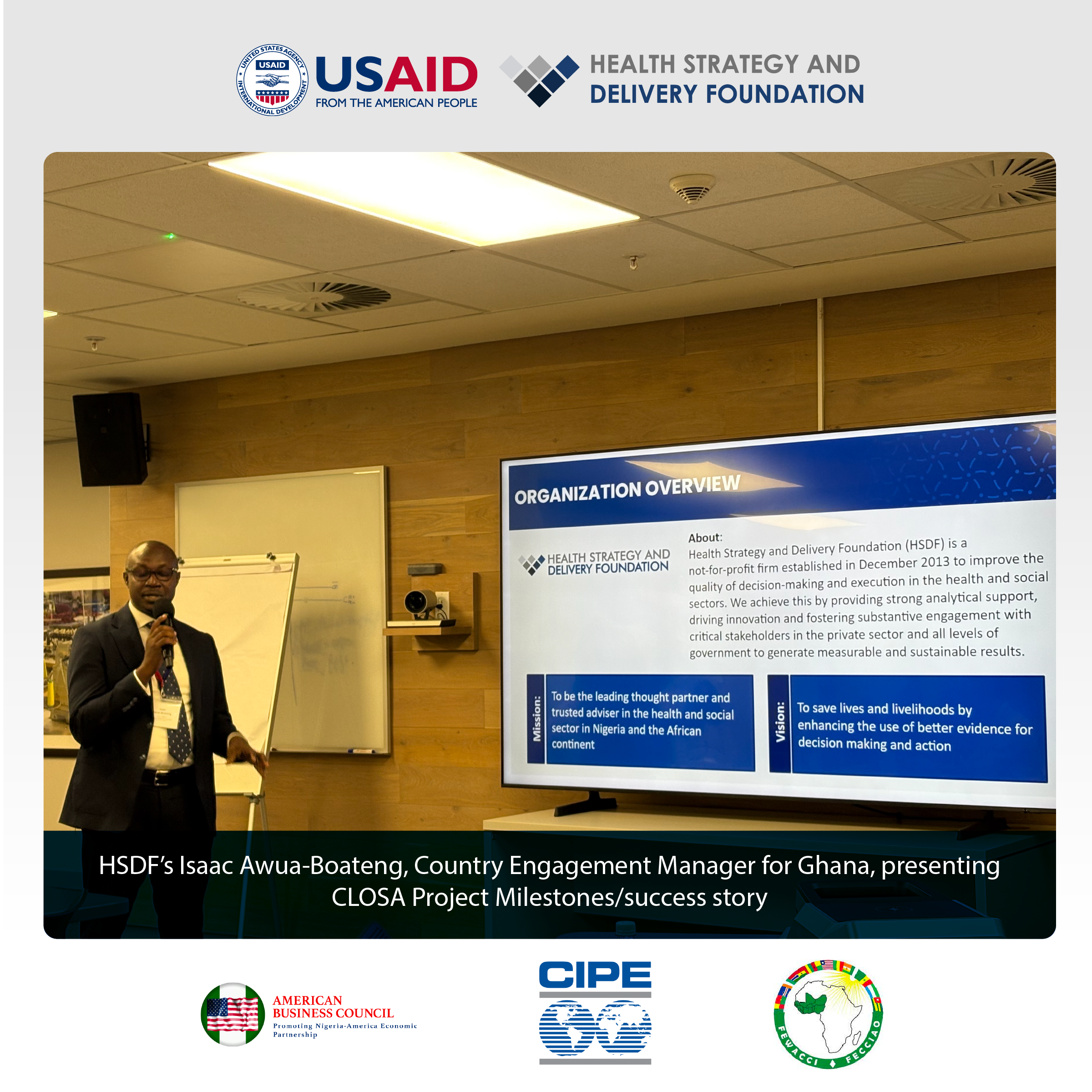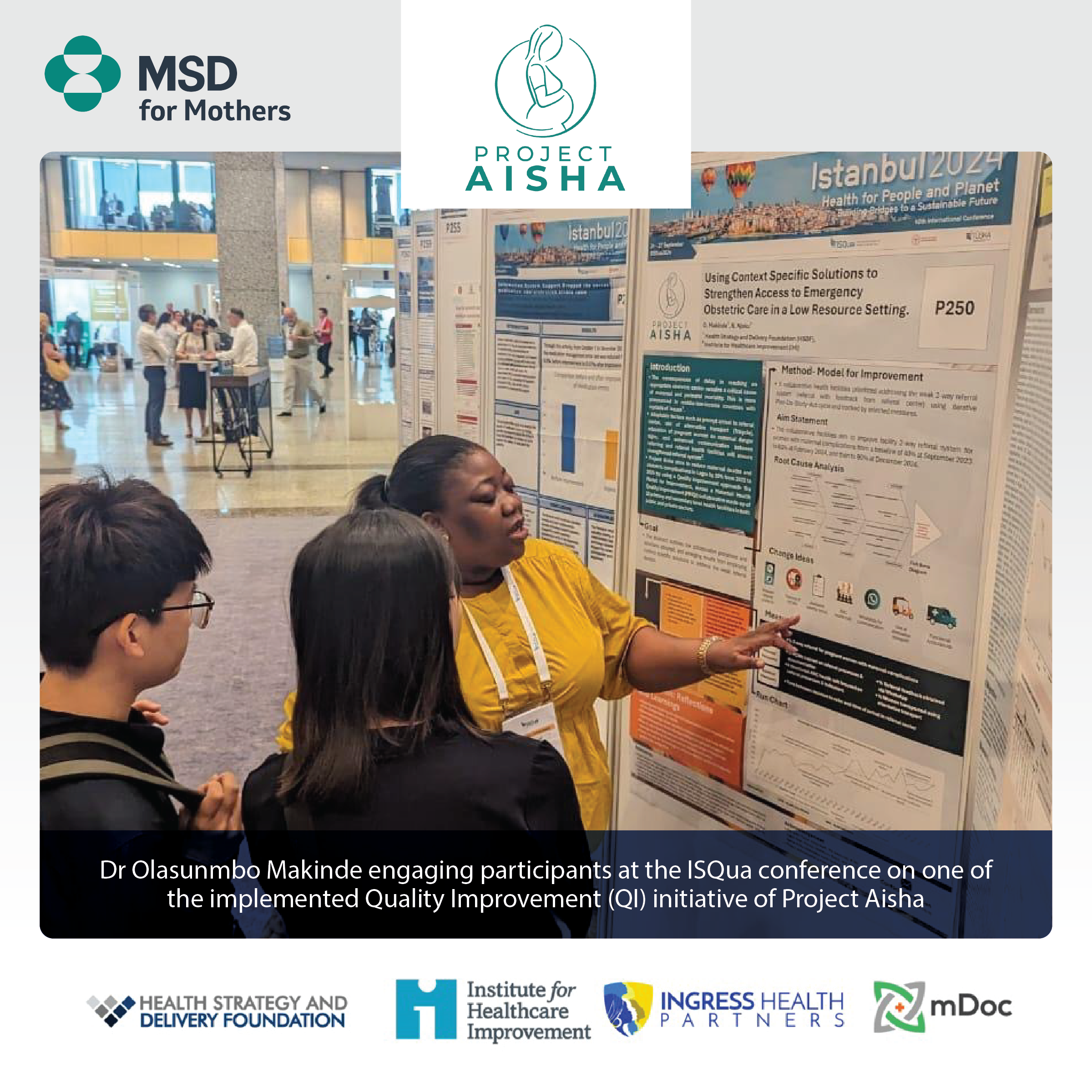Shugabanci – Strengthening Primary Health Care in Kaduna State in 2017
The Shugabanci Program (a project of the HSDF Health Systems Strengthening Unit) worked with key development partners and stakeholders in 2017 to strengthen primary healthcare in Kaduna State. Its focus was on the development and delivery of Governance, Supply and Demand interventions through the provision of direct support to Kaduna State’s Primary Healthcare Development Agency (SPHCDA), the State Ministry of Health and related MDAs. These interventions were delivered in four key areas: Service Delivery, Financial Management, Organizational Capacity Management, and Human Resources for Health.
Under the Service Delivery platform, a viable and implementable 4-year Service Delivery Plan (SDP) which incorporates the State’s resources and takes into cognizance its contextual realities, was developed. This was approved by Kaduna State’s Executive Council and incorporated into the State’s 5-year Strategic Health Development Plan (SSHDP) for 2017-2021. The plan was also presented (upon request) at the Nigerian Governors Forum meeting for other states with similar contexts/realities/constraints to consider as a potential alternative in achieving full implementation of the national PHCUOR policy.
The Health Financing team worked with the state in developing sustainable frameworks for the financial management of its health system, including the development of a simple, user-friendly accounting tool for tracking all health funds and transactions, from the source. Other interventions included training for SPHCDA staff and stakeholders at Zonal & LGA levels; the expansion and creation of a more inclusive Finance Technical Working Group (TWG); implementation of key analytical studies such as Fiscal Space Analysis and a State Health Accounts; harmonization of program accounts; the establishment of the Health Financing Policy Advisory Group (PAG) and Technical Taskforce (TTF) to help institutionalize the implementation of State Health Accounts in Kaduna.
To ensure that the SPHCDA was well-positioned as an organization to achieve its objectives, as well as implement and sustain the recommended changes, an Organizational Capacity Management plan was developed. The process included a series of audits, workshops and research activities culminating in the design of a 4-year Organizational Capacity Development Roadmap. The roadmap details specific opportunities and activities for building the capacity of the SPHCDA in the following areas: leadership, people, structure, processes, and infrastructure. This roadmap has been incorporated into the SPHCDA’s Annual Operational Plan (AOP) for 2018.
Adequate planning, distribution, and management of Human Resources for Health remain a challenge of primary healthcare in Nigeria. Therefore the support, empowerment, and capacity building of human resources was identified as a priority for the state to achieve its strategic goals and drive sustainable impact. On this note, HSDF supported Kaduna State in the alignment of its technology platforms to successfully transfer and assimilate over 6000 staff from the Local Government Service Commission into the SPHCDA. It also developed a roadmap for the integration of the PHC workforce into a more streamlined HR management system.
These are some of the marked successes of 2017 for the Shugabanci program. The year was not without its challenges, however, HSDF remains committed to ensuring the growth and success of the public health sector in Kaduna State. As we move into 2018, the priority will be on building sustainable systems and processes, the establishment of data and performance management structures, and the ongoing support of the state.
Recent News
Grants and Business Development Specialist
We are seeking a highly motivated and experienced Grants and Business Development Specialist to join our organization. The successful candidate will be responsible for identifying funding opportunities, developing grant proposals, and fostering partnerships with potential donors and stakeholders (regional and global). This role plays a vital part in securing funds and resources to support our organization’s mission and projects.
Apply NowPublic Health Consultant, Guinea
The consultant (working with the Accelerator team) will collect results from the tool, organize a meeting with stakeholders to discuss results from the tool, and produce a report on key findings and recommendations from the tool to be shared publicly.
Apply NowPublic Health Associate, Senegal
We are currently in search of an experienced Public Health professional in Senegal to work on the anticipated Nutrition Capacity Development and Financing Platform and provide technical assistance to elevate nutrition financing and strengthen local capacity to support these efforts. The Associate must be bilingual (English and French).
Apply Now


